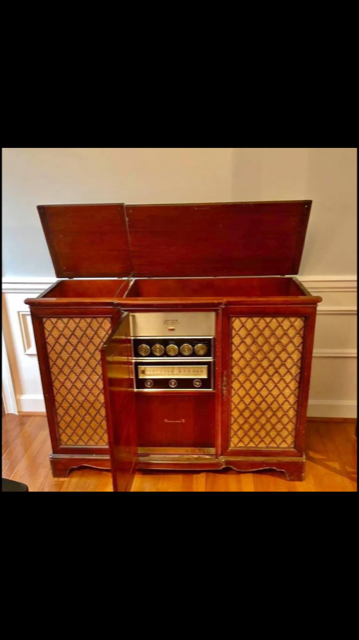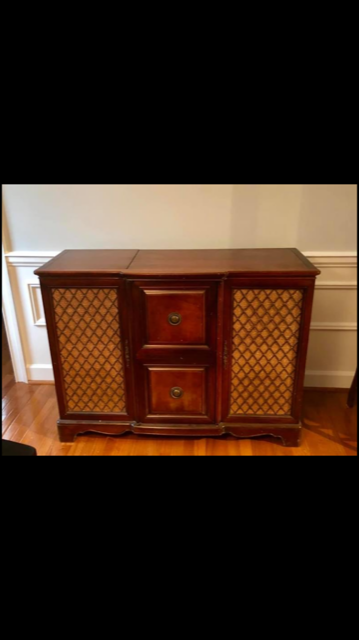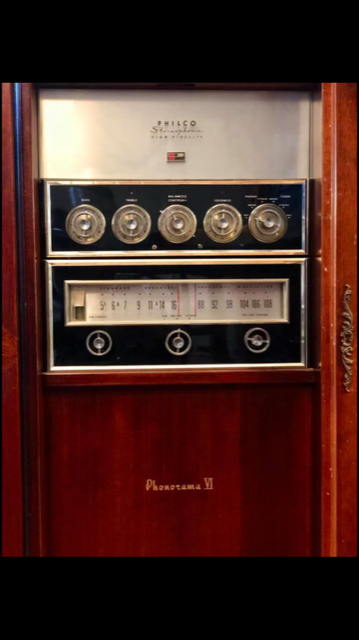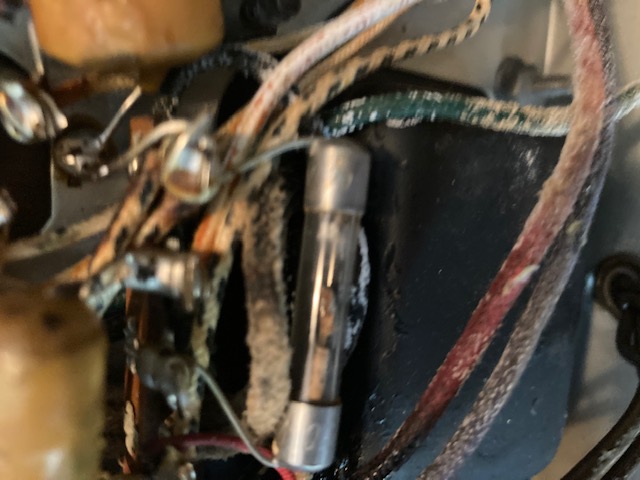06-15-2020, 01:30 PM
Hello!
I recently received an H1916. Beautiful cabinet with a few nicks. Includes the 2 electrostatic speakers and an RT400 stereo receiver. No rusting anywhere except some very slight surface on one of the electrostatic grids in one area (but it shouldn't impede function.) The previous owners said it never turned on for them and they had it about a decade. Upon inspection I found that the soldered fuse was toast. I am hoping the fuse did its job well enough and protected the components after it. It also came with schematics, manual, and other info. The turntable is missing, but I'll worry about that later.




So far all the heater pins have checked out ok, but I haven't managed to get to all of them (there's quite a bit here.)
My intention is to not only replace the fuse, but also the paper caps and can. I have all the numbers off of caps but had a few questions and your assistance would be greatly appreciated!
Questions:
The fuse imprinting appears to be 250 70LT but I can't find anything with this number. The fuse was in rough shape so the imprinting may be marred. Would would be a good replacement fuse for this?
The can has multiple numbers on it, the first being 30-2590-39 and the last being D27665 943. Rather than try to track down 60 year old NOS, would it be better to open it up and replace the caps in it with new ones?
I was planning on obtaining replacement caps through tubesandmore.com but if there are better alternatives, please let me know. Also, is there really any difference in polyester/polypropylene/etc?
Once I've replaced the caps and fuse, I'll attempt to power it up. If all goes well, then I'll go back and replace the old wiring (it's rather sticky/messy...) If I do this, is it worth it to replace the tube sockets as well?
Anything else I should be on the lookout for?
Thanks again!
I recently received an H1916. Beautiful cabinet with a few nicks. Includes the 2 electrostatic speakers and an RT400 stereo receiver. No rusting anywhere except some very slight surface on one of the electrostatic grids in one area (but it shouldn't impede function.) The previous owners said it never turned on for them and they had it about a decade. Upon inspection I found that the soldered fuse was toast. I am hoping the fuse did its job well enough and protected the components after it. It also came with schematics, manual, and other info. The turntable is missing, but I'll worry about that later.
So far all the heater pins have checked out ok, but I haven't managed to get to all of them (there's quite a bit here.)
My intention is to not only replace the fuse, but also the paper caps and can. I have all the numbers off of caps but had a few questions and your assistance would be greatly appreciated!
Questions:
The fuse imprinting appears to be 250 70LT but I can't find anything with this number. The fuse was in rough shape so the imprinting may be marred. Would would be a good replacement fuse for this?
The can has multiple numbers on it, the first being 30-2590-39 and the last being D27665 943. Rather than try to track down 60 year old NOS, would it be better to open it up and replace the caps in it with new ones?
I was planning on obtaining replacement caps through tubesandmore.com but if there are better alternatives, please let me know. Also, is there really any difference in polyester/polypropylene/etc?
Once I've replaced the caps and fuse, I'll attempt to power it up. If all goes well, then I'll go back and replace the old wiring (it's rather sticky/messy...) If I do this, is it worth it to replace the tube sockets as well?
Anything else I should be on the lookout for?
Thanks again!



